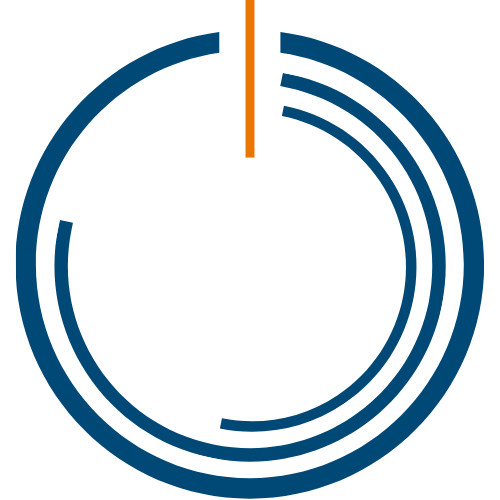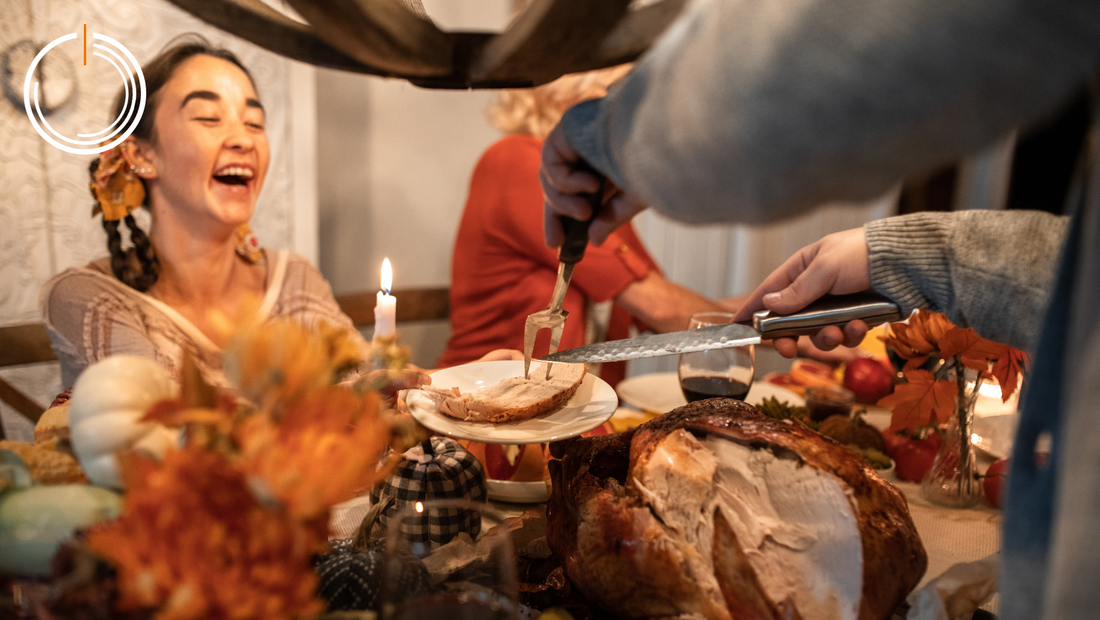Thanksgiving is a time for family, gratitude, and, of course, indulging in a feast of epic proportions. As the meal winds down, many of us find ourselves longing for a cozy nap to ease the post-dinner fatigue. And this is where the myth of turkey-induced sleepiness comes into play. You may have heard the claim that the tryptophan in turkey is responsible for your post-Thanksgiving meal slumber. But is there any truth to this popular belief, or is it merely a myth to justify that extra nap? Let's explore the science behind it and uncover the real reason behind your post-Thanksgiving drowsiness.

Tryptophan: The Culprit?
First things first, yes, turkey does contain tryptophan. Tryptophan is an essential amino acid, a building block of proteins found in both animals and plants. It plays a crucial role in the production of two important hormones: serotonin, which helps regulate mood, and melatonin, which regulates the sleep-wake cycle. Tryptophan's association with these hormones is the basis for the myth that turkey makes you sleepy.
Studies published in Neuroscience and Biobehavioral Reviews confirm that tryptophan promotes good sleep and contributes to a positive mood. Some people even take tryptophan supplements to aid their sleep, ingesting around 5 grams before bedtime. In comparison, two servings of turkey contain approximately 410 milligrams of tryptophan, which is close to the daily recommended intake of this important nutrient.
So, turkey does contain tryptophan, and tryptophan can indeed play a role in regulating sleep and mood. However, this is where the myth starts to unravel.
Turkey Alone Isn't the Culprit
The idea that a few slices of turkey are enough to lull you into a post-meal slumber is misleading. To feel drowsy, you would need to consume a significant amount of tryptophan. Two servings of turkey, while delicious, do not contain a sufficient dose of tryptophan to make you fall asleep.
In reality, it's not the turkey itself that's making you tired; it's the combination of factors present in a typical Thanksgiving meal. When you feast on a holiday spread, you're not just indulging in turkey but also in other foods rich in carbohydrates, such as bread, potatoes, peas, corn, sugary drinks, and desserts. Carbohydrates increase blood sugar levels, leading to insulin production, which, in turn, aids the transfer of tryptophan from your bloodstream to your brain.
This is a key point: it's the carbohydrate-heavy sides, not the turkey, that contribute to your drowsiness. The blame assigned to turkey is not accurate, as other sources of tryptophan like chicken, milk, cheese, beef, nuts, and soybeans never received the same sleepy reputation.
What Really Makes You Sleepy During the Holidays?

Beyond the tryptophan myth, several factors contribute to the sleepiness you may experience after a Thanksgiving feast or any other holiday meal:
Overeating: Holiday feasts are often laden with delectable dishes, and indulging in large portions can lead to drowsiness. Research indicates that high-carb, high-fat meals can trigger post-meal sleepiness, with the most profound fatigue occurring about an hour to an hour and a half after eating.
Alcohol Consumption: During the holiday season, you might consume more alcohol than usual. While alcohol can initially make you feel drowsy, it can disrupt your sleep in the second half of the night, leading to poor sleep quality and excessive daytime sleepiness.
Seasonal Affective Disorder: The reduced sunlight during the fall and winter months can disrupt your circadian rhythm, affecting your sleep-wake cycle. Seasonal Affective Disorder (SAD) is a form of depression that can lead to increased sleepiness, low energy, and cravings for carbohydrates.
Circadian Rhythm: Our bodies have a natural circadian rhythm that influences our sleep patterns. For many people, the sleepiest times of day are in the middle of the night and about 12 hours later. If you enjoy your holiday meal in the early afternoon, you might naturally feel drowsy soon after.
How to Avoid a Nap
If you want to stay alert and avoid post-holiday meal sleepiness, consider these tips:
-
Get Enough Sleep: While holiday gatherings can disrupt your routine, aim for at least seven hours of sleep each night to keep your sleep schedule consistent.
-
Eat Smaller Portions: Reducing portion sizes and choosing foods lower in carbohydrates can help prevent excessive sleepiness.
-
Limit Alcohol: If you're not a frequent drinker, even small amounts of alcohol can make you fall asleep faster. Be mindful of your alcohol consumption.
-
Exercise Regularly: Regular physical activity promotes overall well-being and healthier sleep. However, avoid strenuous exercise within two to three hours of bedtime.
-
Create a Sleep-Friendly Environment: Get some good rest at night. Make your sleep space dark, cool, and quiet, and minimize exposure to electronic devices with bright screens before bedtime.
How to Take the Perfect Nap
Thanksgiving is a day of indulgence, and often, that indulgence leads to a desire for a post-meal nap. While we've debunked the myth that turkey alone is to blame for your drowsiness, there's no denying that a well-timed nap can be the perfect addition to your holiday celebrations. To make the most of your Thanksgiving nap and avoid that groggy feeling afterward, follow these tips for achieving the perfect nap.
1. Nap at the Right Time
Napping at the right time is essential for a refreshing nap that won't interfere with your nighttime sleep. Dr. W. Christopher Winter, a sleep specialist, recommends napping in the late morning or early afternoon. This timeframe minimizes the risk of your nap impacting your ability to fall asleep at night. Additionally, napping at the same time every day (or on days when you decide to nap) can help train your body to recognize when it's time to rest.
2. Create a Comfortable Environment
Your nap environment plays a significant role in the quality of your rest. If possible, nap in a bed that's dedicated solely to sleep (remember, your bed should be reserved for sleep and sex). If a bed isn't available, aim to lie down in the most horizontal position possible. This can help you relax more quickly and prevent disruptions from the hustle and bustle of the living room or your surroundings.
3. Block Out Light and Noise
Light and noise are common disruptors of a good nap. Just as you should minimize exposure to gadgets with bright screens before bedtime, you should also ensure your nap environment is as dark as possible. Drawing the blinds, using a sleep mask, or shutting out the light in any way can promote a more peaceful nap.
Noise can also be a nuisance, even if you aren't consciously aware of it. If quiet isn't readily available, consider earplugs or invest in a white noise machine. White noise effectively masks changes in sound volume and frequency, making it easier to drift off and stay asleep during your nap.
4. Aromatherapy for Sleep
Aromatherapy can be a wonderful addition to your pre-nap routine. Research has shown that specific scents, such as lavender, can improve sleep quality and help you wake up feeling more alert. You can use essential oils, a diffuser, or even scented candles. The key is consistency – if you expose yourself to the same fragrance every time you nap or go to bed, your brain will learn to associate it with sleep, helping you relax faster.
5. Keep It Short and Sweet
The ideal nap duration for most people is between 20 and 30 minutes. This length of time allows you to benefit from a quick energy boost and mental refresh without falling into the deeper stages of sleep, which can lead to grogginess upon waking. Longer naps may be tempting, but they can disrupt your nightly sleep schedule.
6. Practice Relaxation Techniques
Before you begin your nap, it can be beneficial to incorporate relaxation techniques. Deep breathing, progressive muscle relaxation, or guided meditation can help you unwind and ease into a peaceful nap. By reducing stress and anxiety before your nap, you'll maximize its effectiveness. You can also put your feet up to fall asleep faster; elevated feet increases the smoothness of blood flow, which stimulates sleep.
In summary, napping on Thanksgiving or any day can be a delightful addition to your holiday routine. By choosing the right time, creating a comfortable environment, blocking out light and noise, introducing aromatherapy, keeping it short and sweet, and practicing relaxation techniques, you can achieve the perfect nap. Just remember, it's all about balance and ensuring that your nap complements your overall sleep schedule. Enjoy your well-deserved post-feast siesta!
Conclusion
By following these strategies and dispelling the myth of turkey-induced sleepiness, you can fully enjoy the holiday season without the need for that post-meal nap. Remember that it's not the turkey making you drowsy but the overall indulgence and the combination of factors that contribute to post-feast fatigue.

